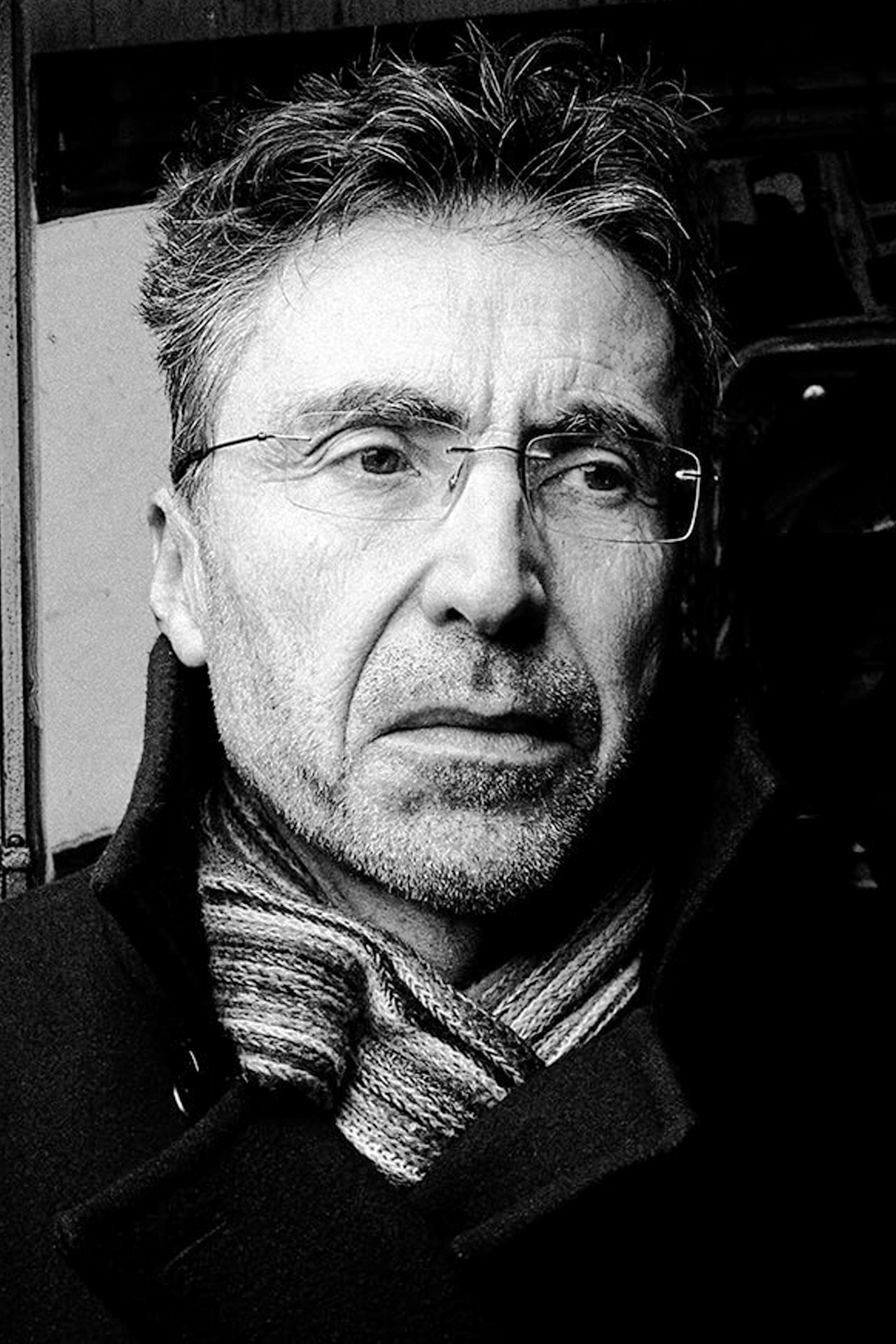
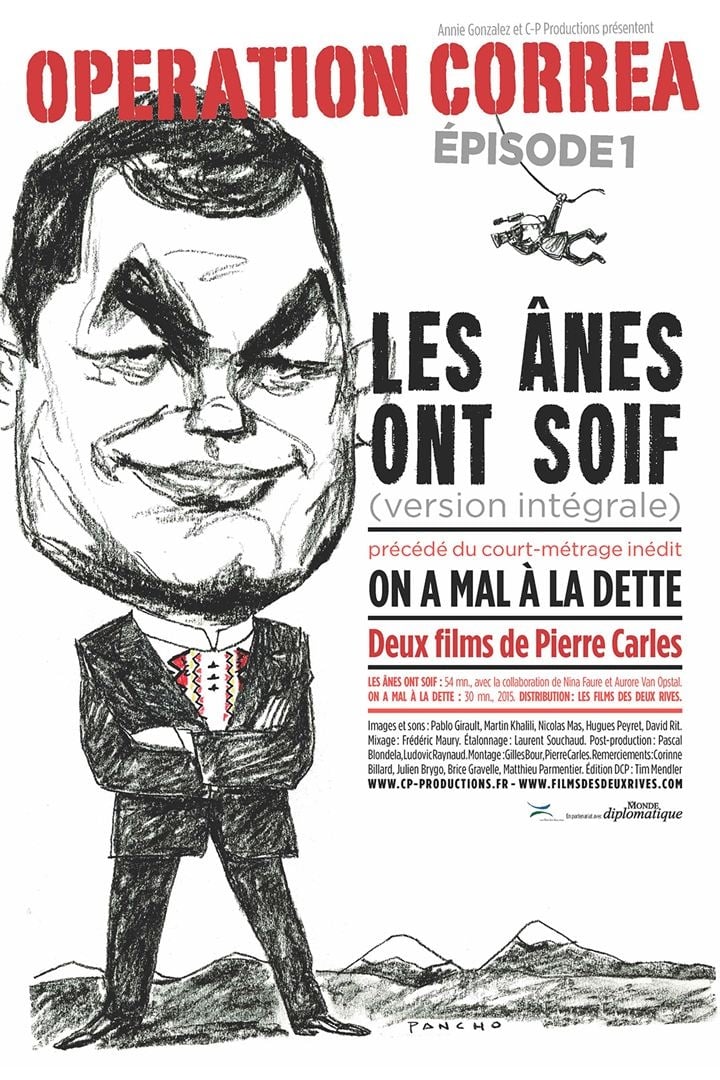
The french mainstream media ignored the last visit in Paris of the leftist Ecuadorian President Rafael Correa. It's however this small country of Latin America, Equator, that serves as a model for Greek activists who are taking part in Syriza party or for non-orthodox economists from the spanish movement Podemos in order to solve the issue concerning the public debt. The Correa government declared a part of this debt « illegitimate » to implement public investment, and social inequalities reduction policies.
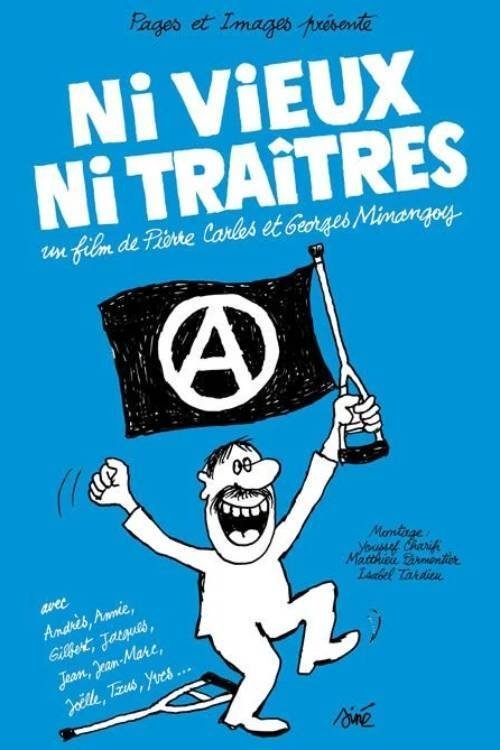
Pierre Carles and Georges Minangoy go to meet former French and Catalan partisans engaged in the anti-Franco anarchist struggle of the 1970s.
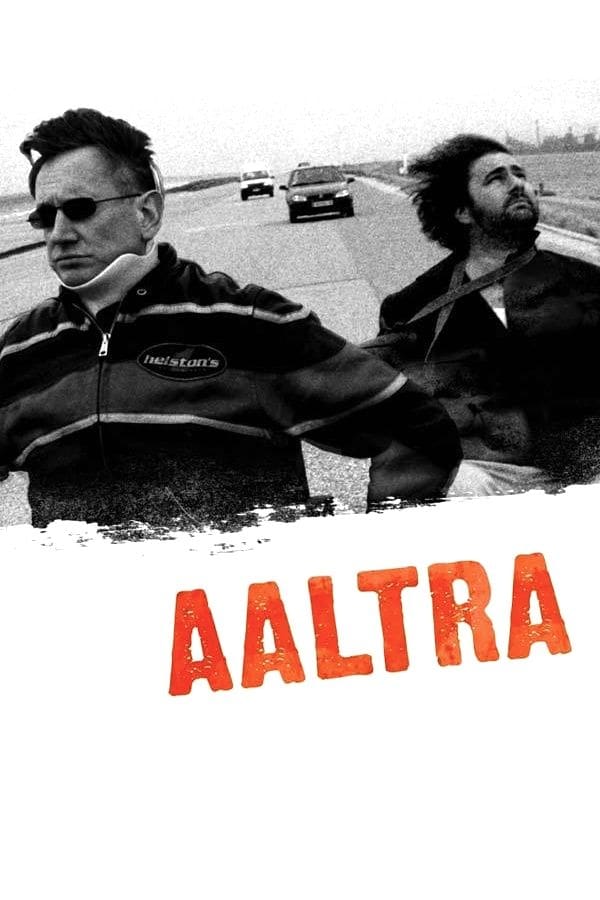
In this pitch black comedy the rivalry between two neighbors escalates into an all out war. Through a maintenance error on a tractor they both end up, paralyzed, in a wheelchair. It seems they are doomed to stay together. They no longer focus their rage on each other but on the manufacturer of the tractor, in Helsinki. So get ready for a hilarious wheelchair road movie.
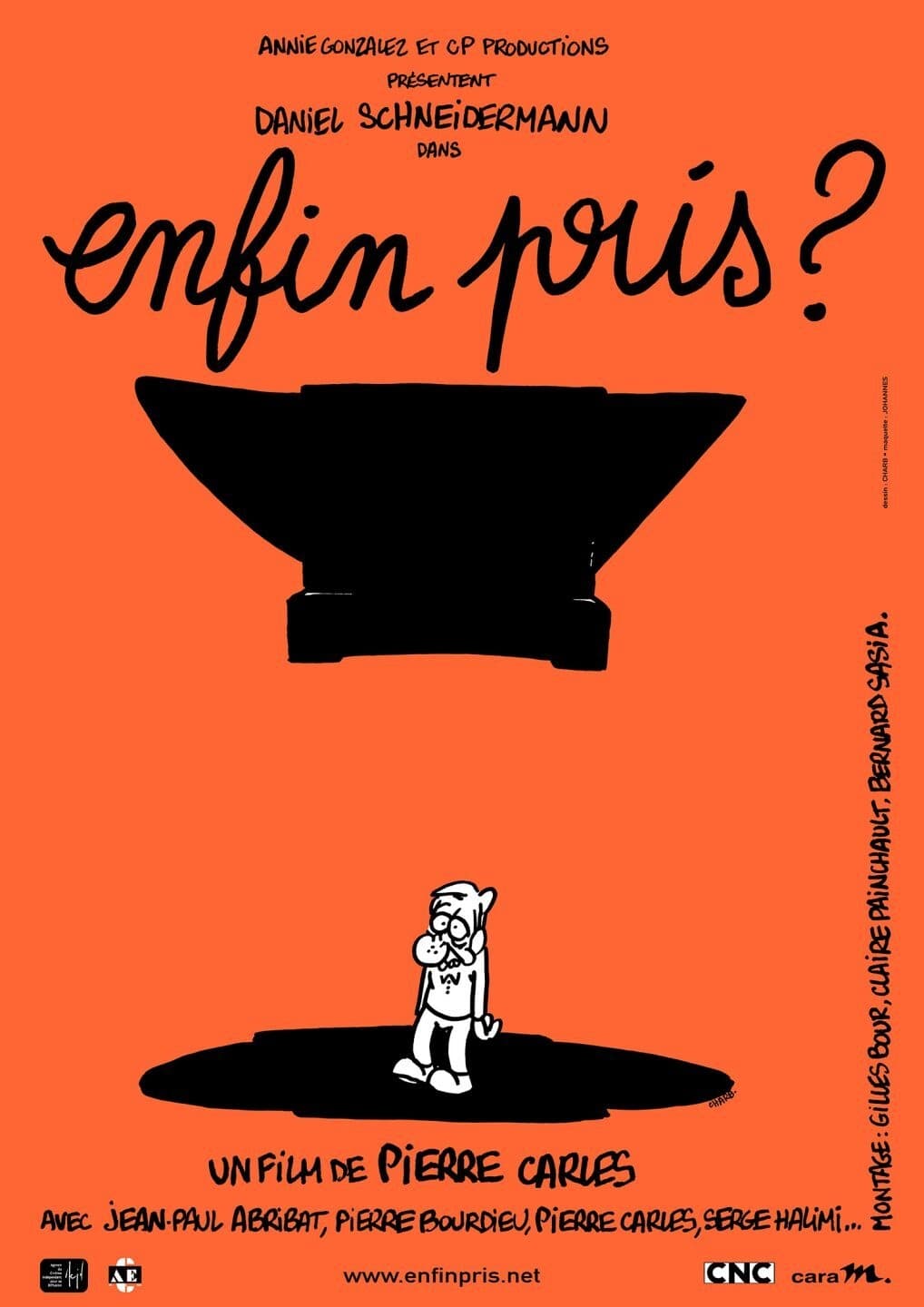
Pierre Carles, the dispenser of justice seen in “Pas vu, pas pris,” is back in the saddle. After attacking French television star reporters, his new target is television critics as represented by Daniel Schneidermann, host of the "Arrêt sur images" show. “Enfin pris ?” analyzes censure at work in television. It is also a thought-provoking look at how power changes people and the intimate forces between ambition and loyalty. A cruel, biting comedy from which no one really comes out unscathed.
Pierre Carles was born in 1962 in Gironde. He spent part of his childhood and adolescence in Chile and Colombia with his mother, a teacher in French schools. He returned to France in the late 1970s and studied socio-cultural animation, then journalism. He worked in television from 1988, first as a news cameraman for France 3 Régions, then as a columnist or author of humorous subjects in variety shows (TF1, France 2, Canal +, M6). From 1993, he made short documentaries for the Belgian-French show Strip-tease (France 3) and for the magazine Brut (ARTE). In 1998, he created a production company in Montpellier, with around ten audiovisual and cinema workers involved in the production of his first feature film, Pas vu pas pris, including producer Annie Gonzalez. From 1998 to 2020, he directed or co-directed around ten feature-length documentaries for the cinema, which deal with media criticism (Pas vu pas pris, 1998; Enfin pris?, 2002; Fin de concession, 2010; Les Ânes ont soif, 2004), the questioning of wage labor and the possibility of living differently (Attention danger travail, 2003; Volem rien foutre al païs, 2007), armed struggle (Ni vieux, ni traîtres, 2006)... He is also the author of filmed portraits of singular personalities such as Professor Choron (Choron dernière, 2008, with Éric Martin) or Pierre Bourdieu, whom he followed for three years to produce La sociologie est un sport de combat (2001). Through the exchanges of the great researcher with colleagues, journalists or activists, the profound nature of sociological practice and its critical potential are expressed.
By browsing this website, you accept our cookies policy.